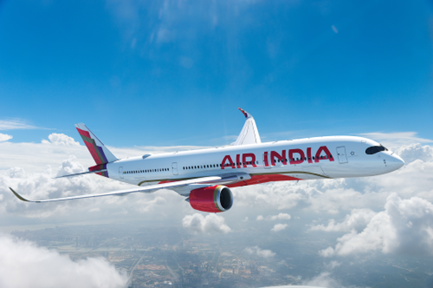West African airlines court international partners as aviation sector revives
Opportunity for the likes of Singapore Airlines and Emirates to acquire strategic stakes

In a bid to revive the aviation sector several West African states are starting to look out for strategic international partners. Ghana is expected to announce the preferred bidder for its new -as yet unnamed) – national carrier; Sierra Leone inked a deal with a private Nigerian operator Xejet to run its national airlines in May; and the aviation minister of Nigeria confirmed earlier this year that his government was actively seeking interest from international investors to take a controlling stake in Nigeria Air, the republic’s brand new national flag carrier which received its operating license in June. Among the reported suitors are Qatar Airways and Emirates Airlines. Nigeria Air is set to eventually service 41 routes from Abuja and 44 from Lagos, including 20 regional offerings and 11 long-haul services. It is set to be structured as a public-private partnership (PPP), with the federal government holding a 5% stake; local investors owning 46%; and 49% owned by an international partner airline(s).
The Nigeria Air project has already racked up USD$35m in consulting and advisory fees, raising the ire of domestic critics and bringing to attention the dire fiscal state of the country. Then there are the legacy issues. Former workers of the liquidated Nigeria Airways have petitioned the NCAA to withhold an operating license for Nigeria Air on the basis that they have yet to be paid outstanding compensation cumulatively totaling US$79m. Also hanging over the project is the spectre of regulatory overreach that pervades so many sectors in Nigeria. One need only look back as recently as March 2021. In response to coronavirus-related restrictions placed by Emirates Airlines on Nigerian travelers seeking to enter the United Arab Emirates (UAE) at the time the Nigerian government prohibited the airline from flying to the Emirate. The ban compounded the inconvenience faced by travelers and was only lifted in November. Earlier, in 2008, Virgin Atlantic announced its divestment from Virgin Nigeria Airways on account of its grievances with a relocation of terminal mandated by the aviation ministry.
Meanwhile Ghana is reportedly a little closer to achieving its aim of finding an international partner. Well-placed sources have commented that the shortlisted list of bidders includes local entities Ashanti Airlines and the JNH Group, as well as Ethiopian Airlines and EgyptAir. This jurisdiction is not without its own challenges. Case in point: both previous flag carriers – Ghana International Airlines and Ghana Airways – folded in 2010 and 2004, respectively. While Sierra Leone has found a partner in Xejet, which will soon run flights from Freetown the country’s aviation market is relatively small.
For investors there is notable upside potential. In data released before the coronavirus pandemic, Nigeria’s National Bureau of Statistics reported that the number of international passengers transiting Nigerian airports had risen to 2.12 million during the period between January and June 2019. The World Bank regards this as being associated with an international ranking of about 57 (between Israel and Bahrain). More recently, NBS figures suggest that international air traffic grew to 2.2 million in 2021. Ghana, for its part, registered over 1.2 million passengers in 2021. Nigeria and Ghana are also relatively well located (Nigeria’s aviation ministry claims that the country is “equidistant from all locations of Africa”), both are of the right side of a demographic dividend (there are 200 million people in Nigeria alone), and there are rising middle classes in both.
For those like Singapore Airlines, which has so far maintained a very light footprint in Africa, investment in either flag carrier could allow for significant access to the African air transport market, with Nigeria or Ghana serving as a connecting point to a host of countries in central and west Africa. The first mover advantage could be particularly significant ahead of expected aviation sector tax reductions associated with the African Continental Free Trade Agreement.
References
‘Finally, Nigeria Air to Get Operating License Today’, This Day, 06 June 2022
‘Ghana close to naming successful bid for new flag carrier’, CH Aviation, 24 May 2022
‘Xejet signs MoU with Republic of Sierra Leone to operate national carrier’, Sun News, 31 May 2022
‘Nigeria Air: Everything About The Planned National Carrier’, Simple Flying, 30 March 2022
‘Emirates, Qatar Airways jostle for Nigeria’s national carrier’, Guardian, 01 April 2022
‘Uneasy Calm, Anxiety As Nigeria Air Takes Shape’, Daily Trust, 03 April 2022
‘After years of waiting, a new Ghanaian flag carrier could be on the horizon’, Aerotime, 27 May 2022
‘Air Transportation Data’, National Bureau of Statistics, 2019
‘Air travel rebounds in Nigeria’, Caj News Africa, 21 April 2022
‘International Passenger Distribution’, Ghana Civil Aviation Authority, 2021
‘National carrier project faces fresh hurdle’, Guardian, 12 April 2022














/enri-thumbnails/careeropportunities1f0caf1c-a12d-479c-be7c-3c04e085c617.tmb-mega-menu.jpg?Culture=en&sfvrsn=d7261e3b_1)

/cradle-thumbnails/research-capabilities1516d0ba63aa44f0b4ee77a8c05263b2.tmb-mega-menu.jpg?Culture=en&sfvrsn=1bc94f8_1)







